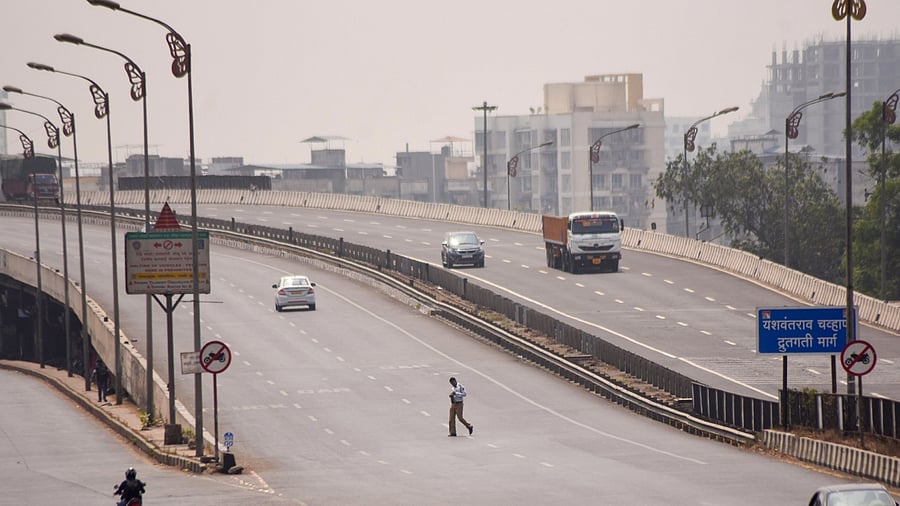
Representative Image of an Expressway.
Credit: PTI File Photo
With the 246 km Sohna-Dausa stretch of the Mumbai-Delhi Expressway witnessing 150 accidents in six months, the latest one involving a Rolls Royce, the National Highway Authority of India (NHAI) has decided to conduct a safety audit of the road.
The NHAI is planning conducting a safety audit of the expressways with a focus on structural design, entry and exit points, slip roads, stoppage points and other infrastructural aspects.
The Sohna-Dausa stretch of the Mumbai-Delhi Expressway was opened to regular traffic on February 15 this year. For the past six months, the stretch witnessed more than 150 accidents. With the traffic volume on the expressway touching 25,000 to 28,000 vehicles daily at present, the road mishaps also increased, according to NHAI officials here.
The NHAI will also seek views from commuters about their experiences of driving on this stretch. Taking all inputs, the NHAI will take corrective steps wherever required, said an official.
According to the NHAI official, there were some defects found on the stretch due to soil settlement. Due to this, the road surface levelled down in some stretches.
The debate on the safety of the expressway came to the fore following a recent road accident in which a Rolls-Royce crashed into a fuel tanker, killing two persons.
The Rolls-Royce, which was in a convoy of more than 10 cars, was moving at a speed of more than 200 km per hour when it hit the fuel tanker. Two persons in the fuel tanker died and car occupants survived with injuries. According to Haryana Police, Kuber Group director Vikas Malu, who was in the car, was injured. The police issued a notice, asking him to join the investigation into the accident.
“The government should ensure better coordination between the NHAI, road construction companies, state transport authorities, CPWD, transport departments, hospitals, ambulance services, police, PWDs, NGOs and municipal bodies for road safety, as well as providing better trauma care to accident victims in the country,” said K K Kapila, President Emeritus, International Road Federation (IRF).
“At present, government and individual bodies are making isolated efforts. But it is important to bring them on the same page for making concerted efforts to save precious lives. Alongside generating awareness, there is an urgent need to promote rescue, relief and rehabilitation of victims with a view to saving lives and reducing impact severity,” said Kapila.
